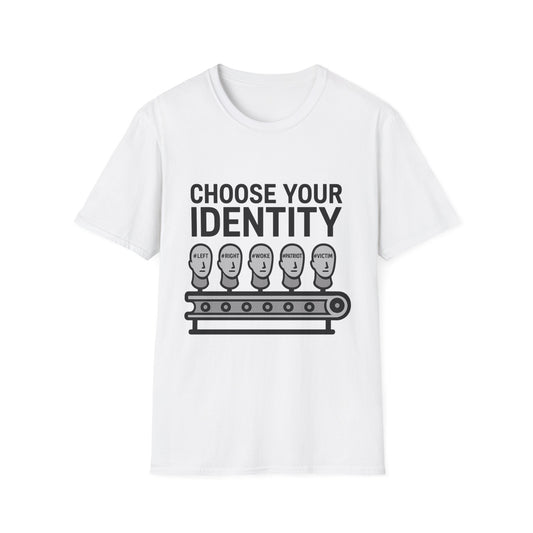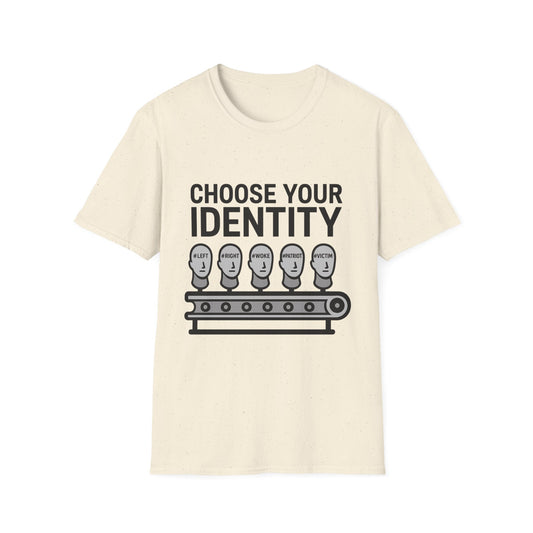
The New Obsession With Surveillance Tech (And Why You Should Be Worried)
The New Obsession With Surveillance Tech (And Why You Should Be Worried)
It started with convenience.
A doorbell camera here.
A smart speaker there.
A home security system you could control from your phone.
They told us it was for safety.
That it would make our lives easier.
That we’d finally feel secure, connected, in control.
But they didn’t tell you that once the cameras went up, they’d never come down.
They didn’t tell you that the same devices you installed to watch the world… were watching you.
Surveillance tech isn’t just a trend anymore—it’s a religion.
And we’ve all been baptized in pixels, algorithms, and paranoia.
Ring cameras. Facial recognition. Smart homes. License plate readers. Digital door locks. AI monitoring systems.
These are no longer high-tech luxuries—they’re the new normal.
They're in your neighborhood, your workplace, your city, and probably your living room.
And the scariest part?
You invited them in.
We’re not talking about government spying anymore. That’s old news.
We’re talking about self-surveillance. Voluntary tracking. A culture that’s not just being watched—but actively chooses to be.
Because we’ve been sold a lie:
That comfort equals safety.
That visibility equals peace.
That if we have “nothing to hide,” we should have nothing to fear.
But the people selling us that idea?
They’re the ones collecting the data. Selling it. Storing it. Using it.
And they’re not doing it for your safety.
They’re doing it for profit. And control.
How It Starts
Let’s start with the obvious: Ring and Nest doorbell cams.
Millions of households now run 24/7 surveillance on their front porches.
Motion sensors. Night vision. Facial databases. Sound recognition.
Every knock, every delivery, every neighbor’s walk to their car—all of it recorded.
Most people don’t even realize that when you install a Ring, you’re not just watching your doorstep—you’re feeding a vast surveillance network.
Amazon owns Ring.
And Amazon has partnered with over 2,000 police departments to give them access to your footage without a warrant.
Let that sink in.
You paid to install a police surveillance tool on your own home.
And you probably thanked them for it.
That’s how deep the programming runs.
You’re the Product
We don’t even ask questions anymore.
We just upgrade.
We just plug it in.
We just smile and wave at the blinking red dot in the corner of the room.
Smart speakers listen.
Smart TVs track viewing habits.
Smart fridges record usage.
Roombas map your floorplan.
Everything connects. Everything reports.
And when you bring this up?
You get the same response every time:
“I don’t care. I’m not doing anything wrong.”
But you’re missing the point.
It’s not about what you’re doing now.
It’s about what they can do with the data later.
Surveillance Rewires You
Surveillance doesn’t just track you.
It changes you.
Once the cameras go up, people act differently. Subtle things. Micro-behaviors.
You walk slower past a doorbell cam.
You hesitate before yelling.
You filter your thoughts, your words, your reactions—just in case someone’s watching.
Because someone always is.
This isn’t safety.
This is social conditioning.
It’s not about catching criminals.
It’s about shaping citizens.
Making you obedient. Polite. Predictable.
Teaching you that the only way to feel safe is to be constantly watched.
They don’t need to punish you.
They just need you to self-censor.
And the beauty of it? You’ll do it voluntarily.
That’s the brilliance of modern surveillance: it’s not hidden.
It’s embraced.
You brag about it.
You sync it to your phone.
You post footage of “suspicious behavior” to community forums.
You become part of the machine—both watched and watcher.
It’s neighbor vs. neighbor.
Citizen vs. citizen.
All under the illusion of “community safety.”
This is how control spreads now—not through force, but through fear wrapped in convenience.
Facial Recognition & The Algorithmic Judge
And the deeper we go, the darker it gets.
Take facial recognition.
It’s already used in over 20 major U.S. cities—often without consent.
Public spaces. Airports. Sporting events. Even schools.
Your face is a fingerprint now.
And once it’s scanned into the system, you don’t own it anymore.
Combine that with AI surveillance, and suddenly you're living in a world where machines—not humans—decide:
- Whether you’re a threat
- Whether you’re allowed in
- Whether your “behavior” looks suspicious
- Whether you deserve to be flagged, tracked, denied
No trial. No warrant. No appeal.
All based on predictive data, digital patterns, and algorithmic bias.
China Isn’t the Future—It’s the Blueprint
Sound extreme? It’s already happening.
In China, AI surveillance systems rate citizens in real time—scoring behavior, attitude, and loyalty.
Jaywalk? You get flagged.
Speak out? You lose points.
Step out of line too often? You lose access to basic services.
It’s called a social credit system.
And while the West laughs at it, we’re quietly building the same thing.
Only ours comes with better branding:
Loyalty programs.
Credit scores.
Digital IDs.
ESG scores.
All voluntary. All “optional”—until they aren’t.
And once you accept that level of monitoring, you can never walk it back.
Because the system doesn’t shrink. It expands.
Every new camera. Every new law. Every new “smart” upgrade pushes us closer to a future where privacy is extinct and freedom is conditional.
There Is No Opting Out
And if you think you can just “opt out,” try going a week without your phone.
Without apps.
Without GPS.
Without surveillance capitalism baked into your daily life.
The moment you stop complying, you disappear—digitally, socially, and economically.
That’s the trap.
And most people won’t even realize they’re in it—until the door locks behind them.
Privacy Is Rebellion Now
This isn’t about paranoia.
It’s about patterns.
And the pattern is clear.
Surveillance tech gets cheaper, smarter, more invisible—and more normalized.
What was once sci-fi is now standard.
Cameras on every corner.
Facial scans at concerts.
Smart devices that listen for “emergencies” and conveniently upload your audio to the cloud.
And the most dangerous part?
It’s not being done to you.
It’s being done with your consent.
Every Terms of Service you didn’t read.
Every “Accept All Cookies” click.
Every default setting you never changed.
You didn’t just give away your privacy.
You sold it for convenience.
And now we live in a world where privacy is no longer a right—it’s a luxury.
Something only the rich and powerful can afford.
You?
You’re the data farm.
Your face. Your voice. Your location. Your habits.
Collected. Monetized. Sold.
And worst of all?
You’ve been trained to like it.
To post everything.
To geo-tag your moments.
To livestream your life.
To hand over your location for a 10% discount.
Choose to Starve the Machine
This is the era of voluntary surveillance.
And it’s killing something sacred: the right to be unseen.
Not because you're a criminal.
Not because you have something to hide.
But because the freedom to exist without being tracked is what makes us human.
When everything is monitored, everything becomes performative.
You don’t speak honestly—you filter.
You don’t act freely—you calculate.
You don’t live—you pose.
That’s what constant surveillance creates:
A society of actors, not people.
Obedient. Predictable. Drained.
But here’s the part they fear:
You don’t need permission to pull the plug.
You can unplug the camera.
Cover the lens.
Ditch the apps.
Speak in person.
Go analog.
Reclaim your life.
You don’t have to burn it all down.
You just have to stop feeding it.
Because every choice you make either feeds the machine—or starves it.
You don’t need 24/7 monitoring to feel safe.
You need awareness.
You need boundaries.
You need to remember what it feels like to not be watched.
This obsession with safety at all costs?
It’s just control in a trench coat.
And once you see it—really see it—
You’ll realize:
Privacy isn’t old-fashioned. It’s revolutionary.







